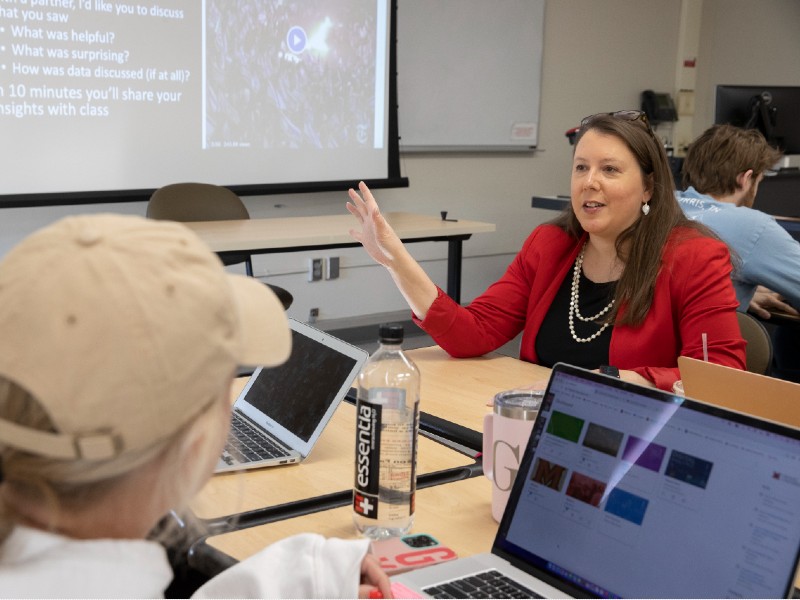
Rosemary Pennington
My Approach to Teaching and Learning
At the heart of all I do, in the classroom and as a researcher, is a desire to understand how media shape how we encounter the world. Media are inescapable; we live in them and through them. It’s increasingly important to understand the influence of news media. Before the rise of social and interactive media, journalists drove the public agenda. Journalists were the gatekeepers, sorting through and fact-checking information before sharing it. They still do this — verification of facts is the essence of journalism — but in a world where anyone can produce media, where anyone can publish a story, verified and fact-checked news stories often get lost in a sea of information. As a scholar, I explore the stories journalists tell, how they tell them, and the impact they have on our lives. I’m also interested in how new media technologies impact the ability of American news media to fulfill their democratic duties of serving as watchdog, mirror, and marketplace of ideas in the United States. Employing the teacher-scholar model in my classes means students pull apart news stories, examining how information is gathered, how sources are found, and how news stories are constructed. We engage in conversations about ethics and truth as we consider our own media consumption and how it can sometimes drive news agendas. Whether a student goes on to be a journalist or not, when they leave my classroom my hope is they are a more engaged consumer of news.
My Teacher-Scholar Journey
Questions of identity and belonging frame my work. As a journalist, I often looked for stories that would let me dig into questions of who we believe ourselves to be. As a scholar, I’ve found myself drawn to the same well of experience. My research on representation, identity, and media often centers upon questions of identity and belonging: How do we define the borders of belonging? How do media participate in the creation of these definitions? Being a journalist taught me the power of voice and of story; being a scholar taught me the importance of recognizing how that power can be wielded, to both good and bad ends. Years studying Orientalism and Islamophobia gave me insight into the types of stereotypes and prejudices news media can perpetuate; working with individuals using new media to fight those stereotypes and prejudices helped me understand the importance of access to communication tools for members of marginalized groups. I’ve explored these issues through qualitative and quantitative methodologies, letting the question I’m interested in guide my approach. As a teacher-scholar, I work to bring students into conversation with research. Insights gained from exploring issues such as social exclusion and misrepresentation can help students become better journalists, help them ask better questions, and look to a more diverse set of sources. If news media are meant to reflect society, then my goal as a teacher-scholar is to help students understand where news media have failed, why they failed, and how they might do better.
Knowledge is Power
“The teacher-scholar model is what higher education should be all about as it provides an opportunity for students to learn, in real time, what their professors are uncovering in their research. Knowledge is a living thing, and Miami students and faculty get to shape it in classrooms every day. What can be really exciting is getting students involved in faculty research or creative activities, extending learning beyond the class. It creates an environment where faculty and students can learn from one another, and we’re all better for it.”
Education
Ph.D. Indiana University
M.A. Indiana University
B.S. Ohio University
More About Me
I have been working in journalism for more than 20 years, with stints at WOUB News and WBHM FM. I’m also the moderator of the Stats + Stories podcast. My research focuses on the representation of marginalized groups, with my questions often driven by my experiences as a reporter.